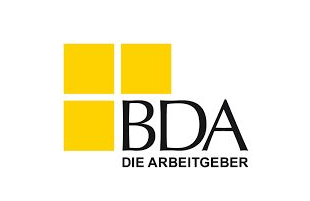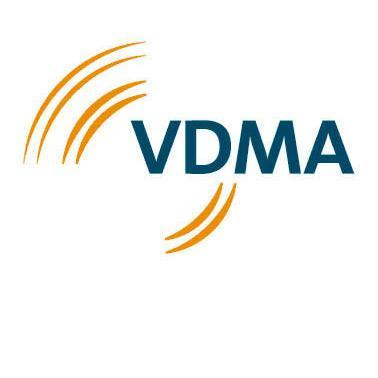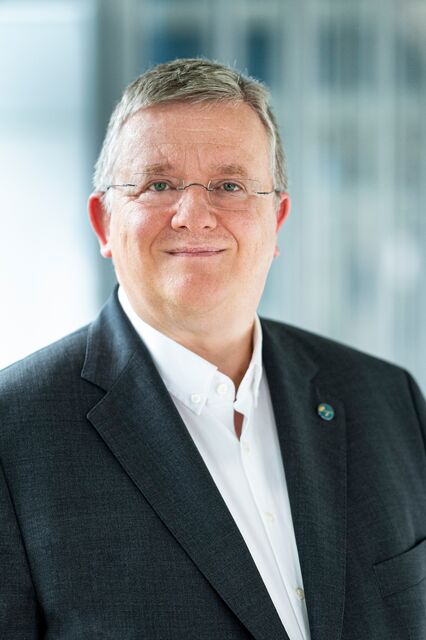Labour Market - vdma.eu
Labor Market
The right labor market policy for more competitiveness

Competitiveness, growth and job security require adaptability, value creation based on the division of labour and a flexible labour market. Digitalisation requires modern framework conditions for Work 4.0.
More flexibility must be given to companies and individuals. In the future, blanket legal regulations will be even less likely to be the right answers to the new challenges.

shutterstock


While the economic situation is serious, the trade unions continue to block urgently needed labor market reforms. Sticking to the status quo, such as the rigid eight-hour working day, is irresponsible in the current situation.
Jobs are also being cut in mechanical engineering because the framework conditions are not improving. Politicians are failing to do their homework: Reduce bureaucracy and taxes, make the labour market more flexible.
On January 1, 2026 and over the course of next year, various changes will come into force in the areas of the labor market, old-age provision, health and care.
The Act to Stabilize Pension Levels and Equalize Child-Raising Periods has been published in the Federal Law Gazette. This concludes the legislative process.
On December 17, 2025, the Federal Cabinet decided to once again extend the period of entitlement to short-time working allowance by decree.
The Federal Ministry for Digitalization and State Modernization launched the EinfachMachen portal on 12 December 2025.
In the course of the final debate on December 5, 2025, the previous draft law was adopted in the version amended by the recommended resolution. Please find attached the recommended resolution and the report of the Defense Committee.
The German government's pension package is a step backwards, not a step forward. Instead of urgently needed structural reforms, it cements the imbalance in the system every year.
The coalition committee of the CDU, CSU and SPD has agreed to extend the period of entitlement to short-time working allowance.
The NRW initiative "Europe - Experience and Learn" promotes stays abroad for trainees and strengthens international skills.
Germany as a high-tech location finally needs reforms. Only then can recruitment and employment incentives follow, as well as more interest in the important STEM degree programs.
With the Digital Omnibus, the EU wants to tackle three laws at the same time and thus create initial relief for the industry. However, this is not enough to ensure Europe's competitiveness as a digital location.
Only 37 percent of mechanical engineering companies are bound by collective agreements. Our latest survey shows: The majority rely on operational flexibility instead of formal collective agreements.
Improvements to the pension package are urgently needed. The Junge Union and Junge Gruppe of the CDU/CSU parliamentary group have a clearer view than the federal government.
The European Court of Justice (ECJ) has only partially upheld an action brought by Denmark to annul the Minimum Wage Directive and declared only subparagraphs null and void.
The economic reforms announced by the German government are still a long time coming, while jobs are being cut. Companies need tangible relief now and not at some point in the future - including in the social and labor market areas.
The Fifth Ordinance on the Adjustment of the Level of the Minimum Wage (Fifth Minimum Wage Adjustment Ordinance - MiLoV5) was published in the Federal Law Gazette on November 7, 2025.
On November 5, 2025, the Federal Government's Cabinet for Reducing Bureaucracy adopted key points for reducing bureaucracy, which also affect occupational health and safety.
The mechanical and plant engineering industry is facing new challenges: Legislative changes, political decisions and recent court rulings are changing the employment law framework and presenting companies with new challenges.
The planned Collective Bargaining Loyalty Act will harm industrial SMEs because it will bring even more bureaucracy, even though companies pay fair wages. In addition, it only applies in Germany, which may give foreign companies an advantage.
The Institute for Employment Research (IAB) has published the results of a company survey on the development of the burden of bureaucracy on German companies.
The Federal Ministry of Labor and Social Affairs (BMAS) has presented a plan to reduce bureaucracy in occupational health and safety.
On October 10, 2025, the Bundestag debated the first reading of the government draft of a law to strengthen the autonomy of collective bargaining by ensuring compliance with collective bargaining agreements when awarding federal public contracts (Collective Bargaining Compliance Act).
In an already tense economic situation, the Collective Bargaining Act is a step in the wrong direction. The effect is to burden medium-sized companies in Germany but not foreign competitors.
On 27.08.2025, the Federal Cabinet adopted the draft law on the modernization of military service - Military Service Modernization Act (WDModG).
More than 3 million unemployed - these figures must be a wake-up call for politicians. Germany needs a turnaround in its labor market policy. Without a reduction in social spending and reforms, the situation will continue to worsen.
The mechanical engineering industry has to cope with serious additional burdens: US tariffs are making business considerably more difficult, while rising social security contributions and high taxes are weakening companies. The government needs to act quickly.
The number of employees in the mechanical engineering sector in Germany fell slightly in the first half of the year, but companies are holding on to their core workforces even in turbulent times.
Companies in the machinery and equipment manufacturing sector pay well, but still are to be branded by means of the Collective Bargaining Compliance Law. The government is steering the wrong course here - it's the same for social spending.
Employment is also declining in industry and as long as the federal government refuses to make real reforms to the labor market, the problem will continue to worsen. This is also reflected in the draft budget.
In the third consultation meeting on the minimum wage adjustment on June 27, 2025, the Minimum Wage Commission unanimously passed a resolution to increase the minimum wage on the basis of a mediation proposal by the chairwoman.
The pension package with additional expenditure envisaged by Labor Minister Bas does not solve any of the problems, but rather increases them. Companies and employees need serious structural reforms.
Non-wage labor costs must be significantly reduced, only then can more employment be expected. this requires a real structural reform in the social security branches.
The EU and the United Kingdom have decided to enter into a dialog on the entry and stay of persons for business purposes. The VDMA hopes that this will facilitate work assignments in the United Kingdom.
Companies in Germany urgently need relief, also in terms of labor market regulations. Switching to a maximum weekly working time would be an important step towards more flexibility.
Germany brings up the rear of the industrialized nations in terms of forecast economic growth. Reforms are also needed in the labor market, which can be perceived as painful.
No economic growth, an ageing society and rising expenditure and contributions: The challenges in labor market and social policy could hardly be greater.
The future of pension funding is the biggest gap in the coalition agreement between the CDU/CSU and SPD. Unpopular measures are also needed to make pensions fit for the future.
The labor market is sending a clear signal: structural reforms are needed now instead of further social benefits, even if they may be unpopular.
To ensure the competitiveness of the mechanical and plant engineering industry, the VDMA is calling for reliable economic framework conditions. A strong industry means a strong economy.
The parties to the collective agreement in the M E industry in Baden-Württemberg have concluded a collective agreement that enables companies to lend employees to each other in order to avoid short-time working or redundancies.
IG Metall wants to secure industrial jobs by giving preference to companies bound by collective agreements. This is the wrong approach.
The mechanical engineering sector is feeling the effects of the recession - yet companies only reduced their workforce by just under 1% in 2024. Even now, the core workforce is to be retained as much as possible.
The Federal Ministry for Family Affairs, Senior Citizens, Women and Youth (BMFSJ) has commissioned a special study on the issue of father-friendliness in mechanical and plant engineering as part of the "Success Factor Family" corporate program.
Competitiveness, growth and a long-term supply of labor and skilled workers require adaptability, a flexible labor market and a future-proof social security system.
NRW's mechanical and plant engineering sector is not only suffering from the effects of global challenges, but also from the implementation of EU regulations, excessive bureaucracy and a lack of planning security.
The German Federal Ministry of Labor and Social Affairs (BMAS) published a draft law on the recording of working hours on April 18, 2023. This has not yet been approved by the coalition.
Change is needed in various areas of education and working life to attract more women to technical professions. The latest study by the VDMA's Impuls Foundation investigates exactly what is needed. For the first time, the study focuses on the link between studies, career entry and the first years of employment for female engineers.
Too few women choose this career path as an engineer because technical job descriptions are often unclear. Prevailing role models and clichés need to be cleared up.
The number of vacancies for engineers in the mechanical engineering sector has reached a new high and demand will continue to grow. Currently, two out of three companies have engineering vacancies to fill.
Events
Shaping the future: How digitalization, climate protection, New Work and new global challenges are changing the mechanical and plant engineering industry in NRW.
Please make a note of the date today. As soon as the agenda has been finalized and the invitation has been sent out, you can register for the event. If you would like to receive the agenda directly by e-mail and thus be informed via the registration function, please ask Ms. Struck to add you to the invitation mailing list.
Equal pay for equal work - what does the implementation of pay transparency mean for SMEs?
ow do we really win managers over to our cause? What do they need from us in order to be able to communicate convincingly themselves? And how do we manage not only to inform them, but also to activate and empower them?
The mechanical and plant engineering industry is currently facing numerous challenges. What impact is this having on the labor market and the skills required for engineers?
VDMA partners



.jpg/68a74a47-48fd-5f76-fe75-e159213bbb85)







